Oro, Ghosh and Suleymenov grab most surprising victories in round-one’s tiebreaks
The opening round of the FIDE World Cup came to an end on Monday in Goa, concluding the first of eight stages in the demanding knockout competition. The 78 players who advanced will now be joined by the top 50 seeds, with all 128 remaining contenders set to fight for three qualifying spots in the 2026 Candidates Tournament.
The third day of action was devoted entirely to tiebreaks. Twenty matches had ended 1-1 after the classical games, and the players returned to the boards to decide their fates in rapid and blitz encounters. The format consisted of sets of 15+10, 10+10 and 5+3 games, though none of the matches required the final 3+2 stage. Out of the 20 tiebreaks, 13 were won by the rating favourites, while the remaining seven saw lower-rated players advancing – though some of them featured opponents of similar strength.
The biggest surprises of the day were produced by three players: Aronyak Ghosh of India, Faustino Oro of Argentina, and Alisher Suleymenov of Kazakhstan.
Aronyak Ghosh (India, 143rd seed), a 23-year-old IM, defeated four-time Polish champion Mateusz Bartel by an overall score of 4-2 in a match that featured all decisive games. After both players exchanged wins with white in the classical section and again in the first set of 15+10 tiebreakers, Ghosh won both 10+10 games to secure qualification. He will face Levon Aronian in the second round.
Faustino Oro (Argentina, 147th seed), aged just 12 and often referred to as the “Messi of chess”, eliminated experienced Croatian grandmaster Ante Brkic in one of the few matches that reached the 5+3 stage. Oro drew both classical encounters and then bounced back after losing the first of the 15+10 tiebreak games, levelling the score immediately in the second. He held two more draws, and finally prevailed in the blitz section thanks to his quick and confident play. The Argentine prodigy, who last year defeated Magnus Carlsen in an online bullet game and recently won a strong round-robin event in Madrid, thus advanced to round two, where he will meet Vidit Gujrathi.
Alisher Suleymenov (Kazakhstan, 153rd seed), aged 25, overcame five-time Latvian champion and well-known commentator Arturs Neiksans by 2½-1½. After three consecutive draws – the two classical games and the first rapid – Suleymenov struck in the second 15+10 encounter, taking advantage of a mistaken rook sacrifice by Neiksans, who appeared to believe he could secure a perpetual check (diagram below). Suleymenov, who famously defeated Carlsen in a classical game at the 2023 Qatar Masters, will next face Jorden van Foreest.
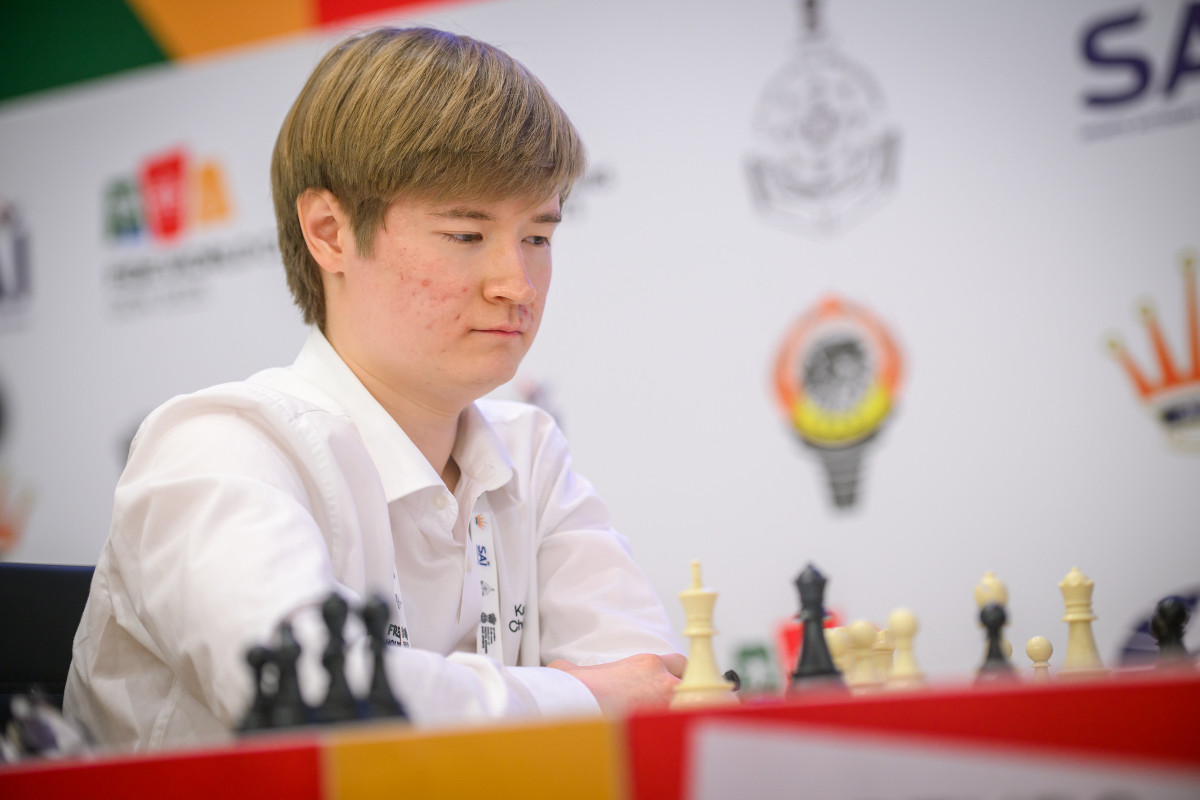
Alisher Suleymenov | Photo: Michal Walusza
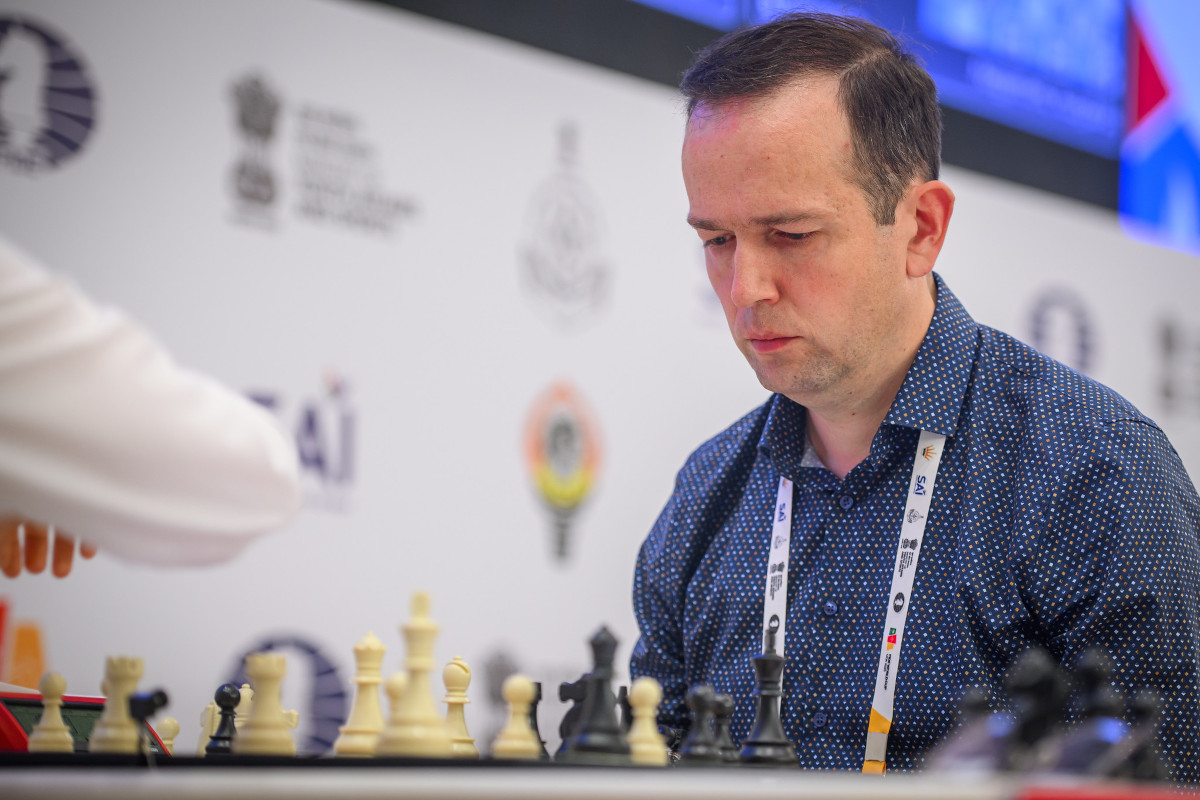
Arturs Neiksans | Photo: Michal Walusza
With the tiebreaks completed, the competition now enters its main phase. On Tuesday, the top 50 seeds, including world champion Gukesh Dommaraju, join the action. While Anish Giri and Matthias Bluebaum have already secured qualification for the 2026 Candidates, and Praggnanandhaa Rameshbabu is almost guaranteed a place via the FIDE Circuit, for many elite grandmasters this event represents their final opportunity to qualify. Among the strongest competitors aiming to keep their hopes alive are Arjun Erigaisi, Wesley So, Vincent Keymer, Wei Yi and Nodirbek Abdusattorov.
Although most second-round pairings will feature major rating differences, history has shown that upsets are always possible in the World Cup. Several evenly-matched, notable encounters are also scheduled:
In this insightful video course, Grandmaster David Navara shares practical advice on when to calculate deeply in a position — and just as importantly, when not to.
Free sample video: Introduction
Free sample video: Invisible moves
- Ediz Gürel v. Frederik Svane
- Etienne Bacrot v. Nils Grandelius
- Aryan Tari v. Pranav Venkatesh
- Max Warmerdam v. Awonder Liang
- Le Quang Liem v. Baadur Jobava
- Michael Adams v. Ivan Cheparinov
- Sam Shankland v. Vasyl Ivanchuk, perhaps the most intriguing of all.
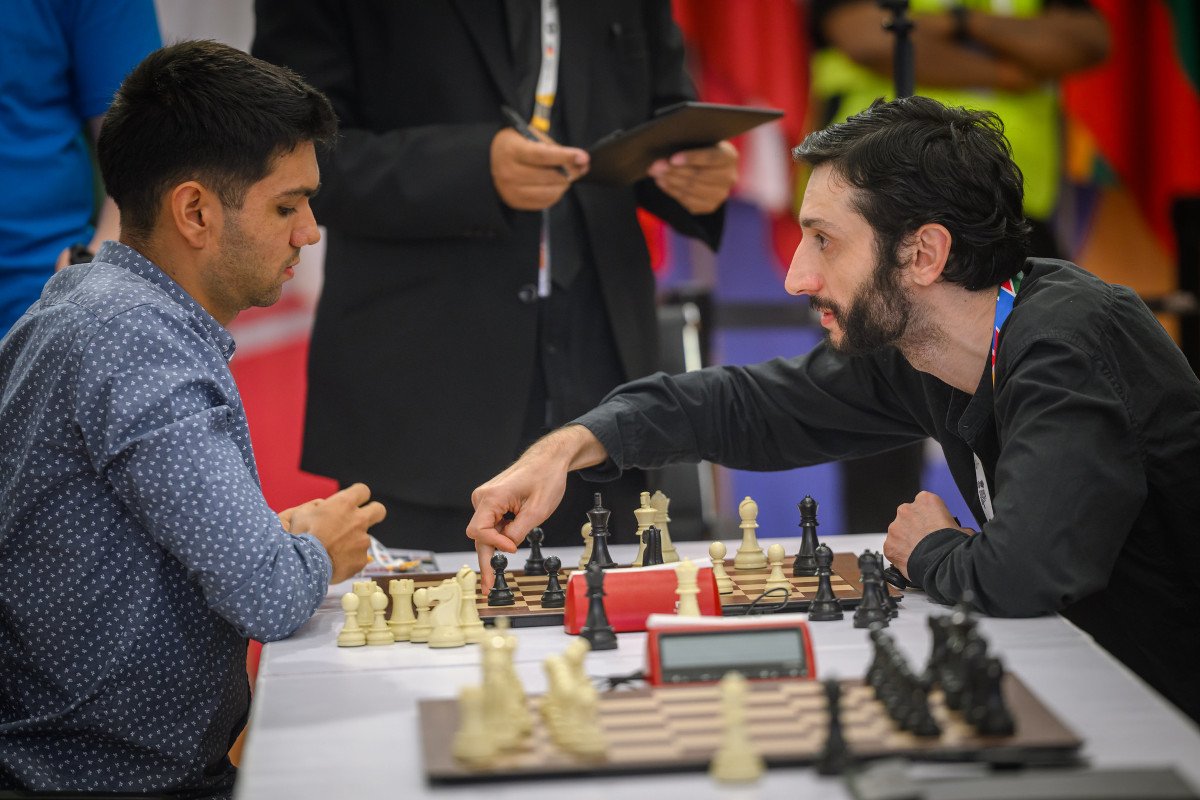
Baadur Jobava knocked out José Gabriel Cardoso in tiebreaks | Photo: Michal Walusza
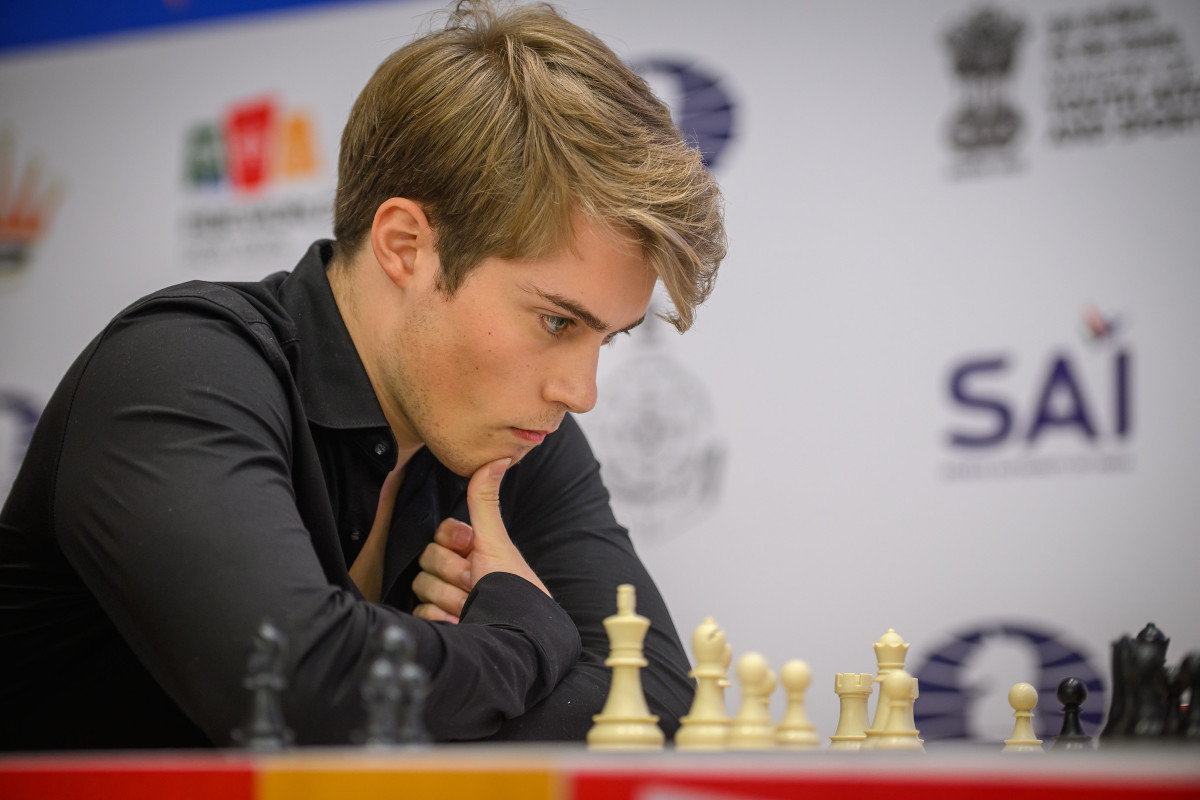
Max Warmerdam | Photo: Michal Walusza
Oro takes centre stage in Goa
Fautino Oro’s match certainly attracted the most attention during the session of tiebreaks. His opponent, Ante Brkic, in fact, started the day scoring a remarkable win with the white pieces, here analysed by GM Karsten Müller.
If one skill decides more games, it’s calculation. Openings fade, plans change – but seeing clearly, comparing lines, and choosing with confidence wins points. In this course GM Ganguly turns calculation into a trainable skill with a structured path for any level. You won’t just solve tactics; you’ll learn how to think: where to start, which branches to explore, when to stop, and how to keep a crystal-clear mental board under pressure.
Free video sample: Introduction
Free video sample: Forcing moves
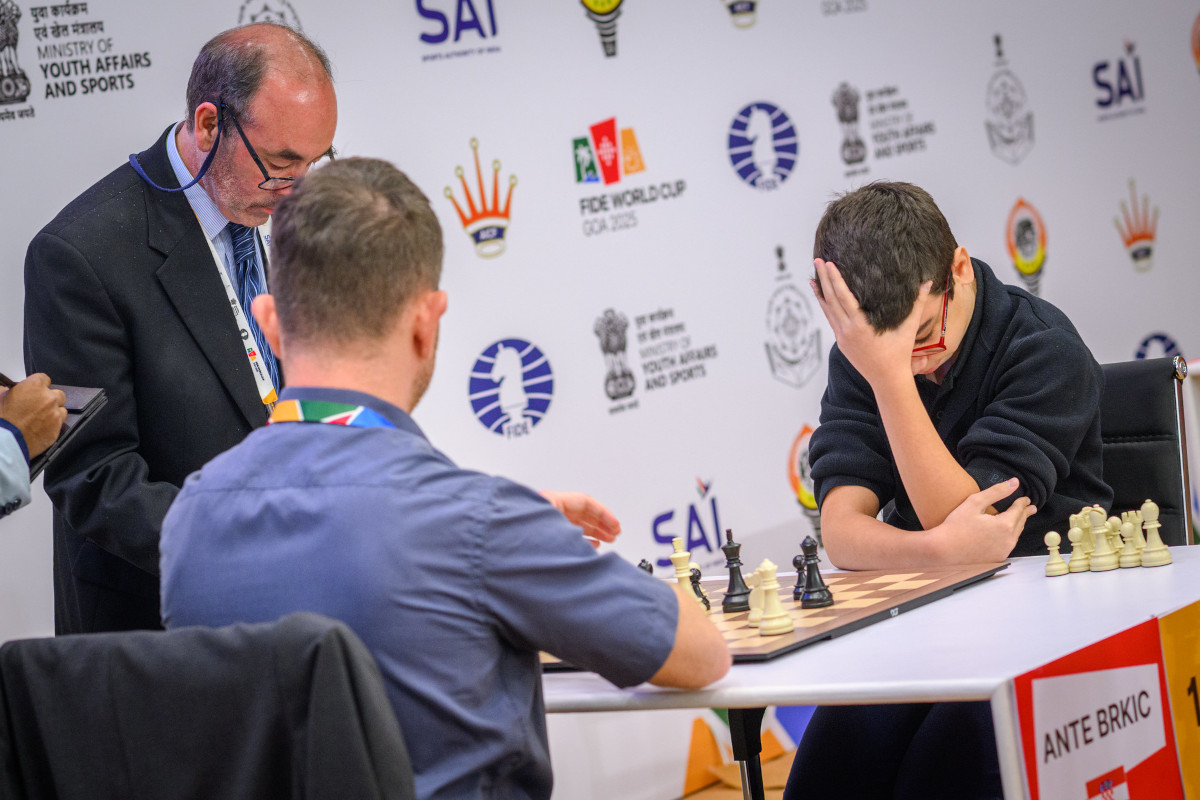
Under pressure! | Photo: Michal Walusza
Since his rise to fame, Oro has demonstrated to be a confident teenager. And his resolution came to the fore in the second 15+10 encounter, here annotated by Johannes Fischer.
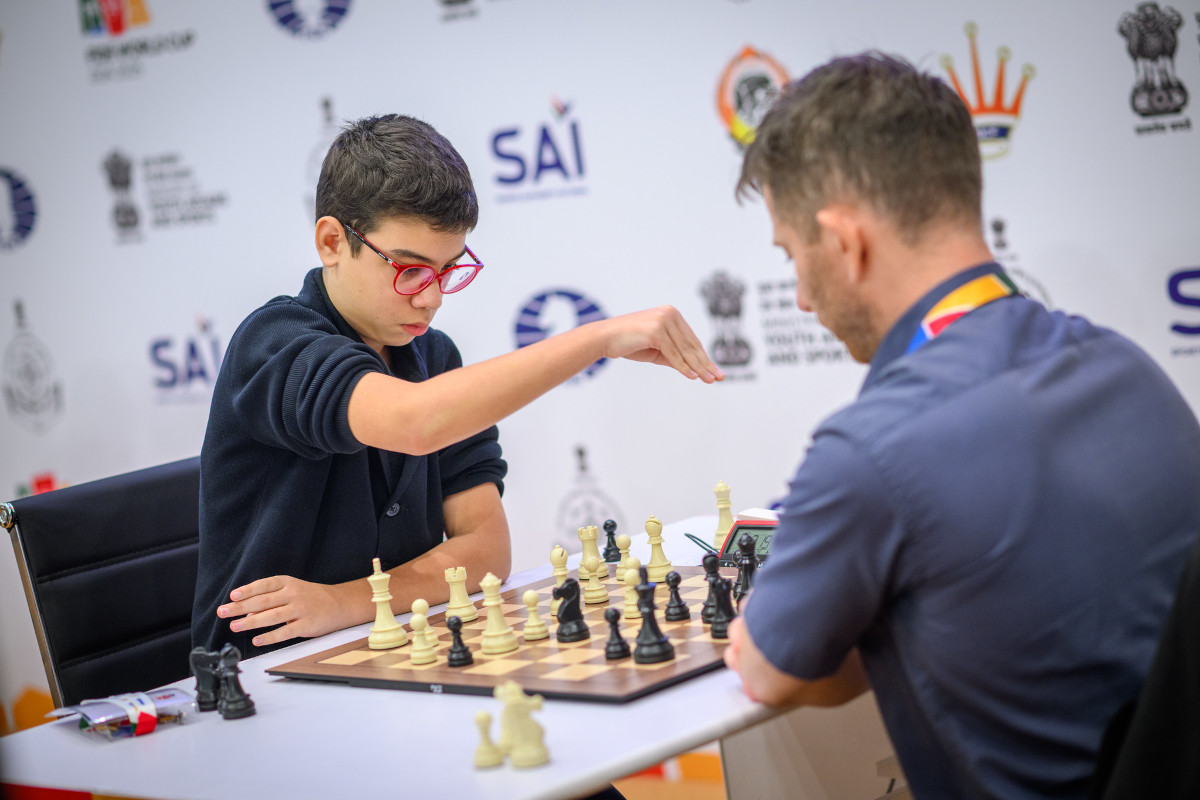
Fully focused! | Photo: Michal Walusza
After drawing the next two games (with a 10+10 time control), Oro prevailed in both 5+3 encounters. In the final game of the day, while in a must-win situation, Brkic made the last mistake when he played 52.Qh2
The position was objectively drawn before Brkic’s blunder – the queen manoeuvre, however, allows 52…Rxe2, which was followed by White’s resignation, since 53.Qxe2 Qxg3+ leads to a winning queen endgame for the South American prodigy.
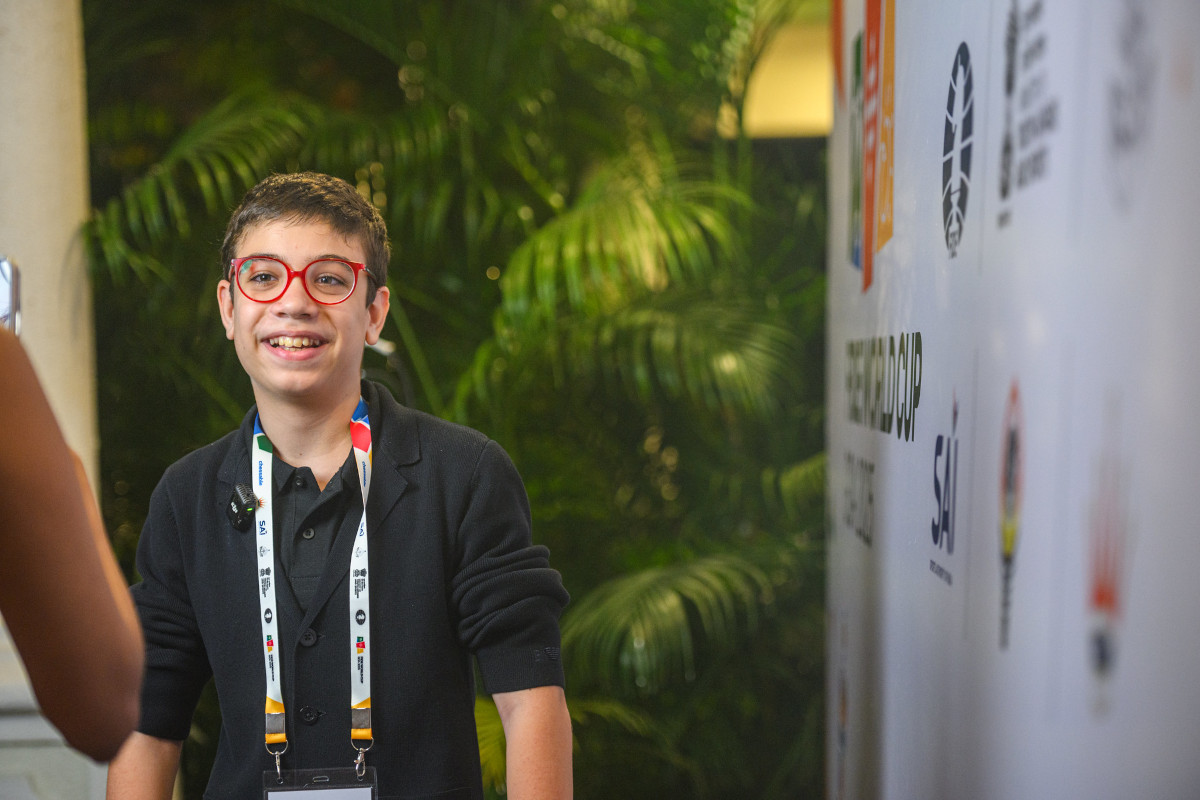
Time to celebrate – and prepare to face elite GM Vidit Gujrathi | Photo: Michal Walusza
All games
In the first part of the video series, we will look at White’s four main moves: 6. Bg5, 6. Be3, 6. Be2 and 6. Bc4.
